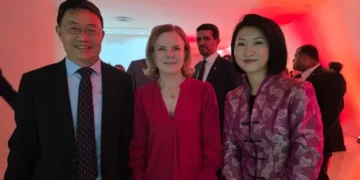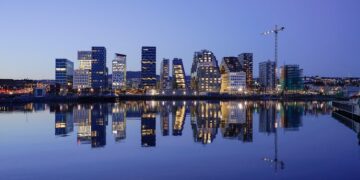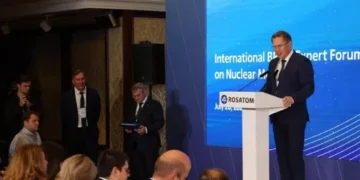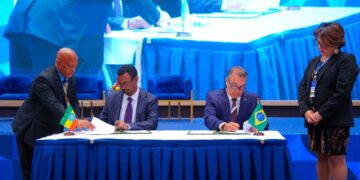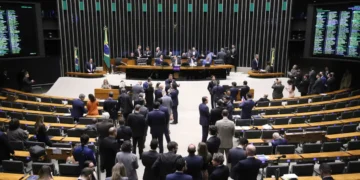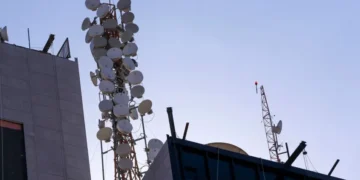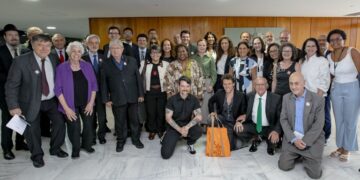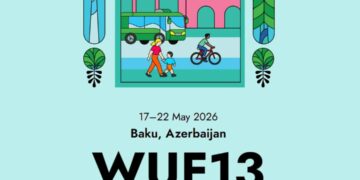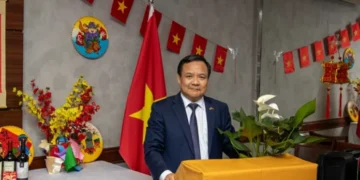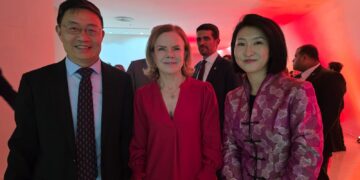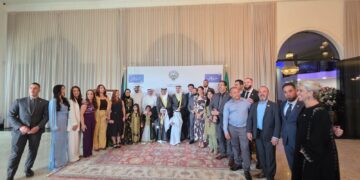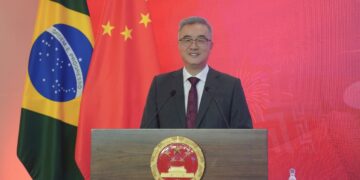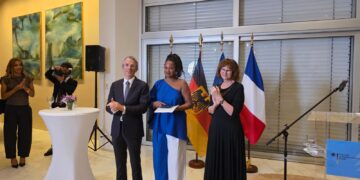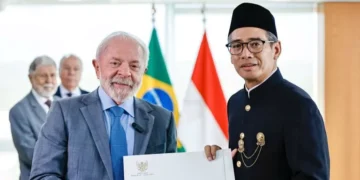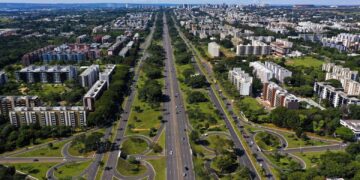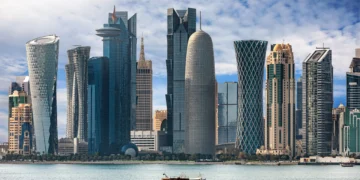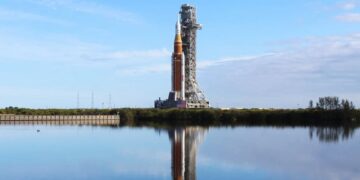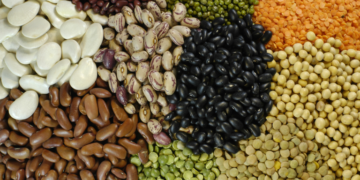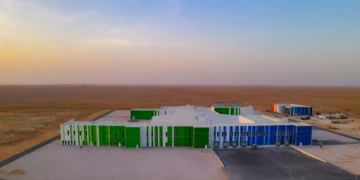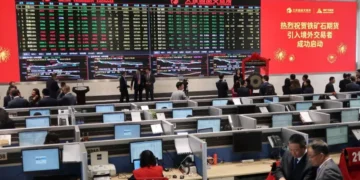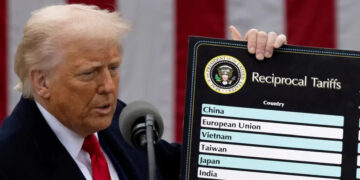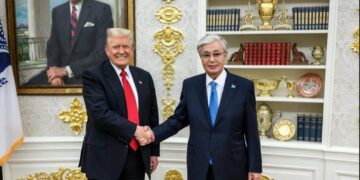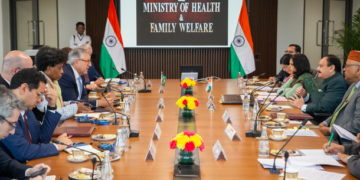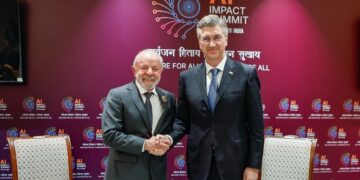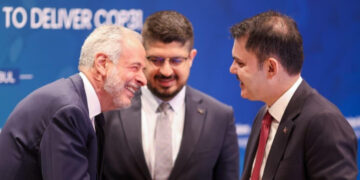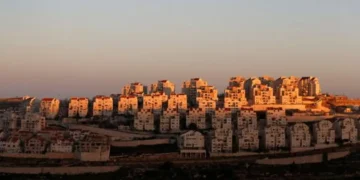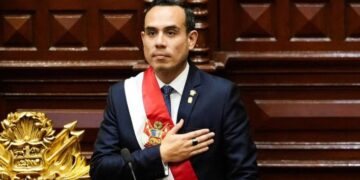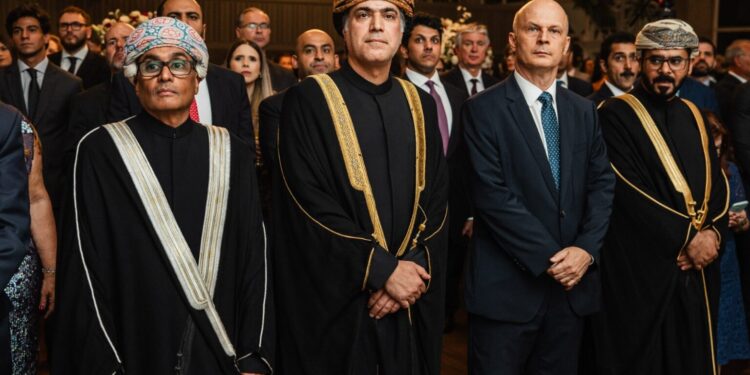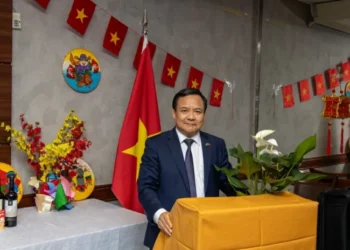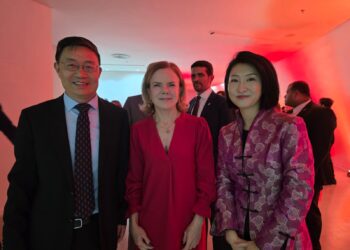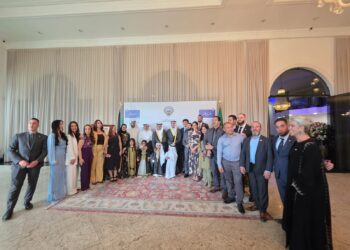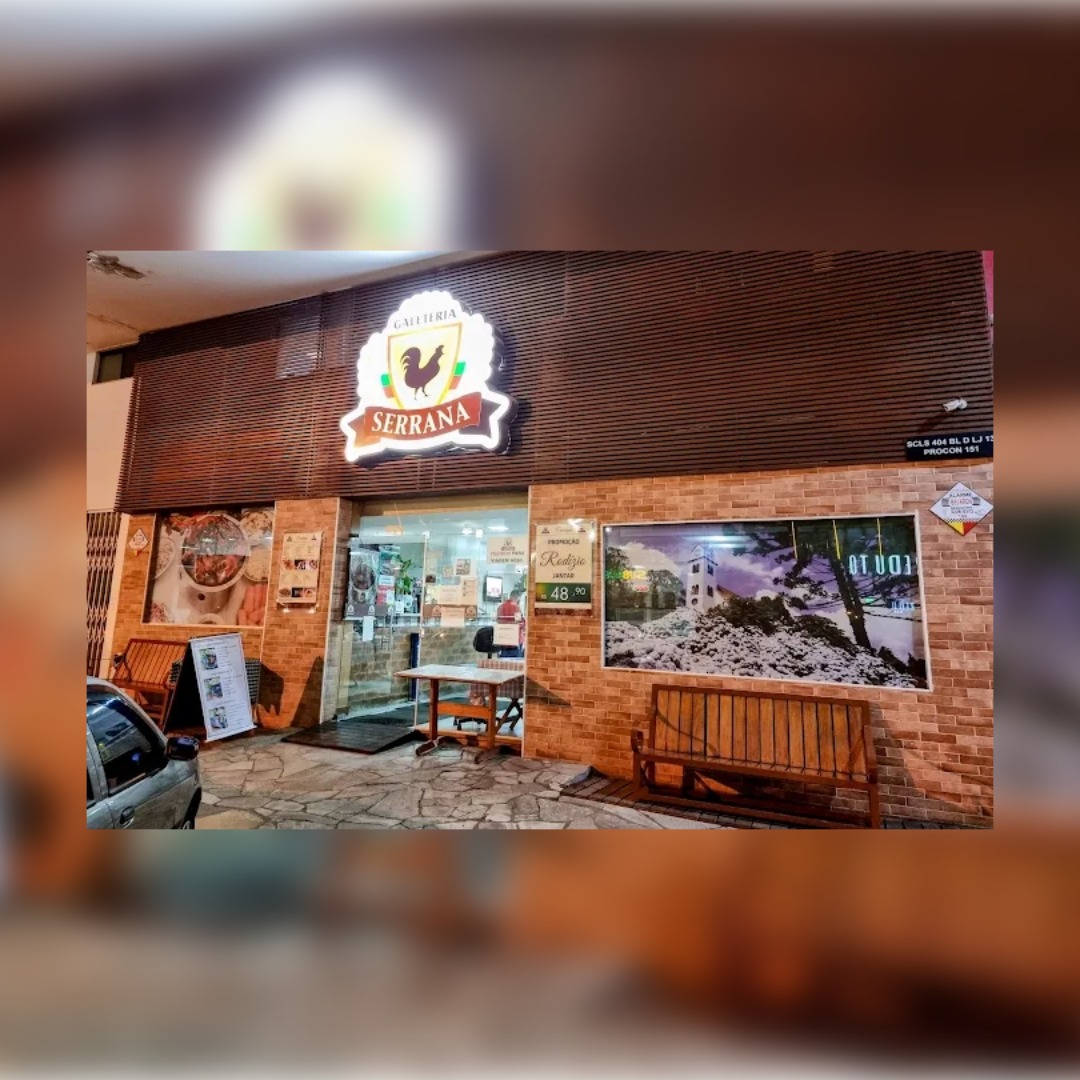On November 20th, Ambassador Talal Al Rahbi hosted a reception in Brasília to commemorate the 53rd anniversary of the revival of the Sultanate of Oman. Distinguished guests in attendance included Brazilian government officials, diplomats, business leaders, journalists, and friends of Oman.
During his speech, Al Rahbi mentioned the bilateral relations between Oman and Brazil, as well as the Sultanate’s rapid growth under the leadership of Sultan Haitham bin Tarik, which has paved the way for a promising future.
Ambassador Clélio Cripa, head of the Middle East department in the Brazilian Ministry of Foreign Affairs, also spoke at the event and emphasized the strong bond between Brazil and Oman.
Ambassador Talal Al Rahbi underscored that the celebration of his National Day serves as an occasion to “reflect on the past, embrace the present, and seek inspiration for the future.”
He also seized the opportunity to reaffirm Oman’s firm position in “supporting the legitimate rights of the Palestinian people for freedom, dignity, and self-determination”.
“The only solution lies in ending the unlawful Israeli occupation of Palestinian territories and establishing an independent state within the borders of June 4, 1967, with East Jerusalem as its capital, based on international law and the relevant United Nations resolutions, and the two-state solution as proposed by the Arab Peace Initiative”, he added.
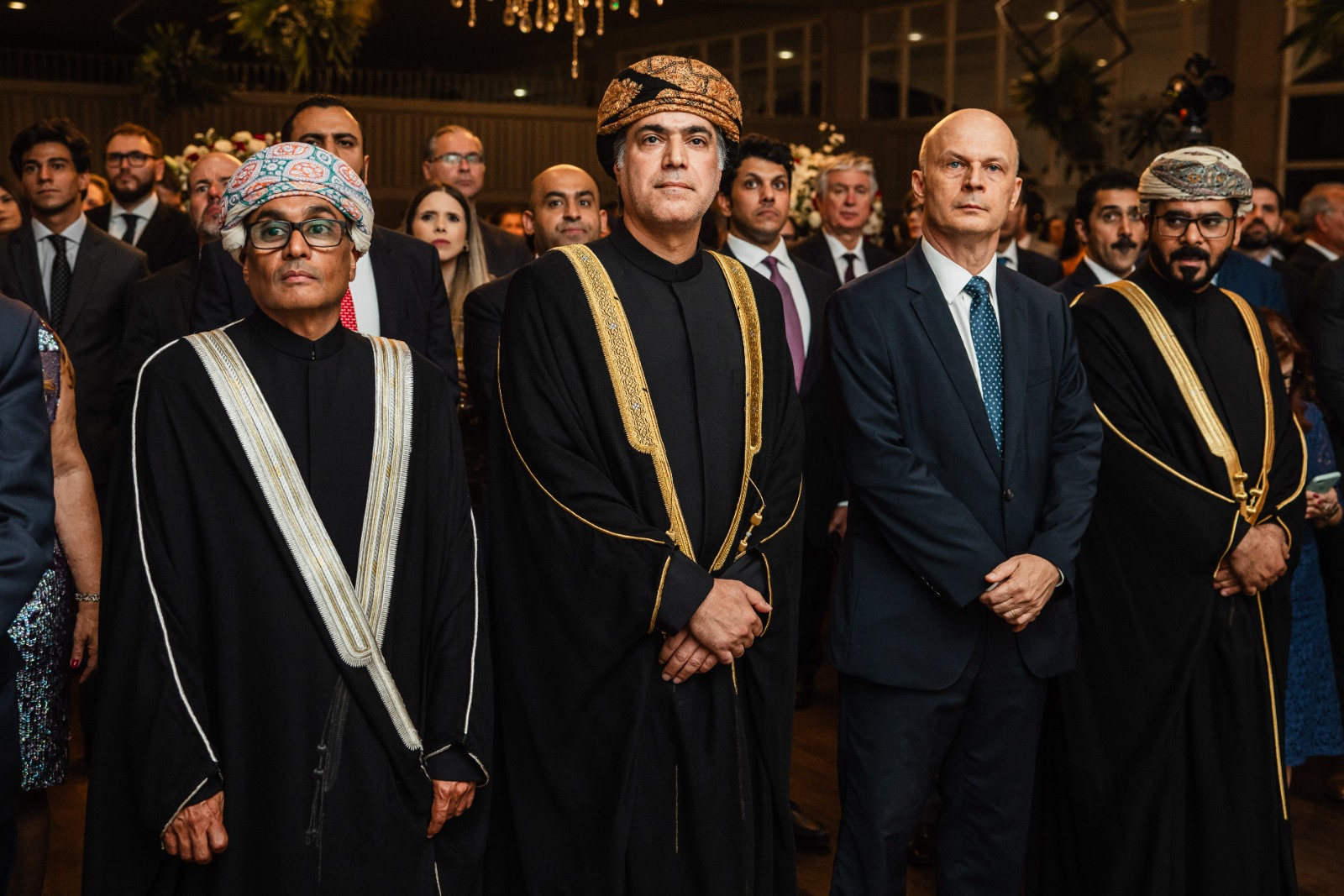
Partnership with Brazil
Addressing the relations between the Sultanate of Oman and Brazil, the ambassador said that “they are constantly developing, as it witnessed during the last period the signing of a number of agreements and memorandums of understanding between the two countries in various fields”.
On the trade and investment level, economic relations witnessed a remarkable development in the volume of investments between the two countries, as Brazil’s Vale invested in the country building a factory in the Omani port of Sohar, and is considering the construction of a second factory there. Additionally, there are several investment projects currently underway between the two nations, with further announcements anticipated in the near future.
The trade exchange between the Sultanate of Oman and Brazil has experienced consistent growth over recent years, as the volume of trade exchange between the two countries increased in the past two years.
In 2021, the value of the trade balance between the two countries reached 2,238,540,216 USD and in 2022 the trade balance reached 2,200,797,599 USD. Oman main exports to Brazil includes: Fertilizers especially Urea, Iron, Frozen fish, Polymer Plastic. Fertilizers were the most prominent products imported by Brazil in 2022, which it accounted for 85% of the Brazilian import basket from Oman.
Ambassador Talal Al Rahbi made clear that Oman welcomes business ventures in key sectors like renewable energy and agriculture to invest in the Sultanate.
“With abundant opportunities for partnerships with private enterprises or collaboration with government bodies, Oman offers a promising landscape. Let’s forge impactful alliances to drive these industries toward a prosperous future”, he pointed.
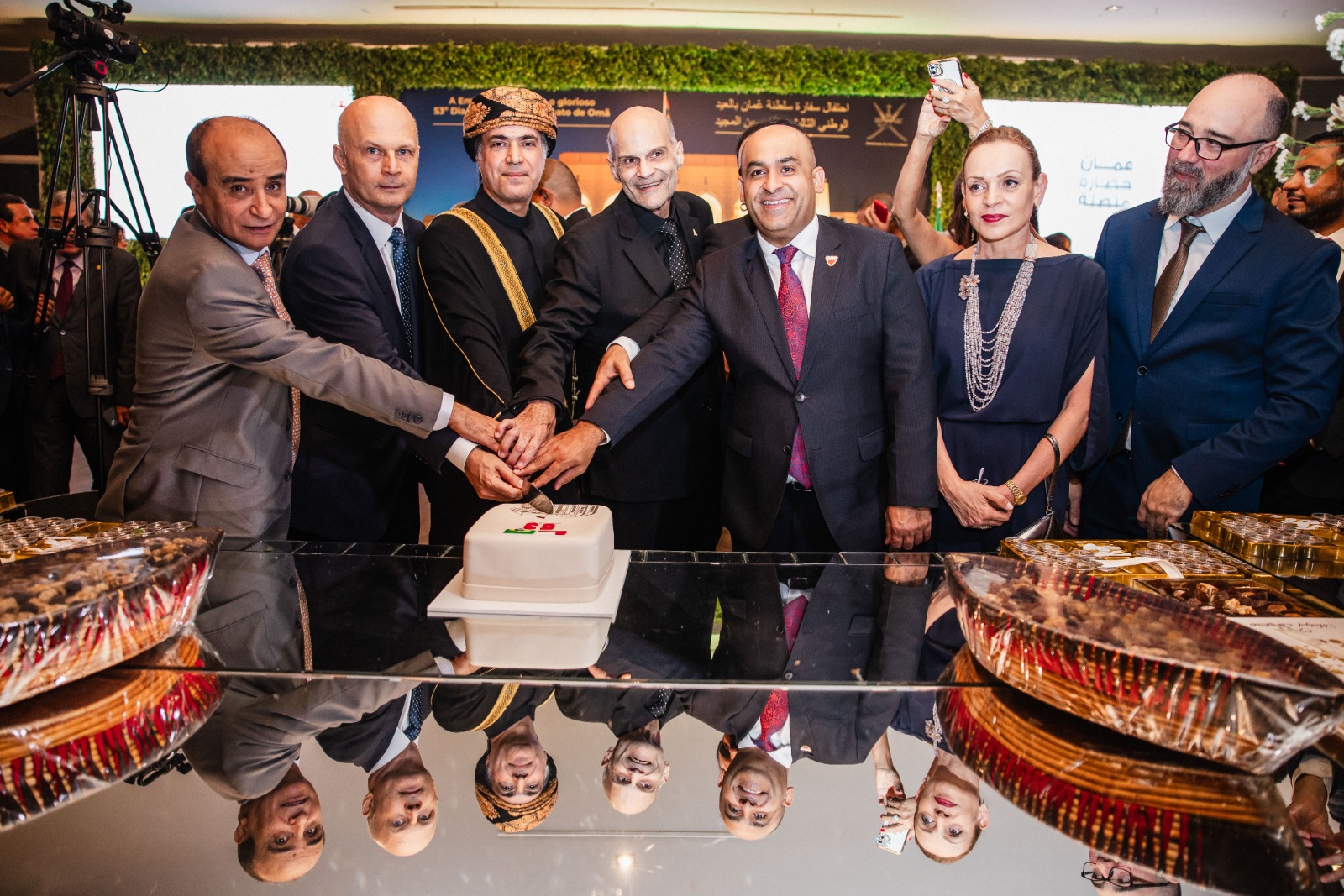
Oman “Vision 2040”
Another topic covered by the Ambassador is Oman “Vision 2040”, a nationwide plan prepared to serve as a guide and a key reference for the state planning during the period 2021-2040. At the same time, the Sultanate’s project takes into account the socioeconomic reality and explores the future objectively, while keeping pace with local, regional and global changes.
Vision 2040 also aims to place Oman in the ranks of developed countries in the economic, social and environmental fields and in the areas of governance and institutional development.
The Sultanate of Oman has initiated a national strategy for achieving zero carbon neutrality and transitioning to renewable energy sources. This endeavor has been undertaken through dedicated efforts, starting with the establishment of the Carbon Management Laboratory in collaboration with various governmental and private entities. The culmination of these efforts was witnessed with the issuance of royal directives by Sultan Haitham bin Tarik, leading to the establishment of the Oman Sustainability Center. Furthermore, the Sultanate has set a target to achieve net-zero carbon emissions by the year 2050.
The Sultanate of Oman aspires to become a prominent player in green hydrogen production worldwide, leveraging its abundant resources such as solar and wind energy, vast land areas, and skilled workforce. The country has also introduced attractive investment opportunities and incentives in the hydrogen sector. It has allocated an area of more than 50,000 square km for green hydrogen projects, which will be launched in phases. Our ambitious plans also aim to produce more than one million tons of green hydrogen by 2030, and with the exploitation of 30% of the allocated land, production will increase to about 8 million tons.

